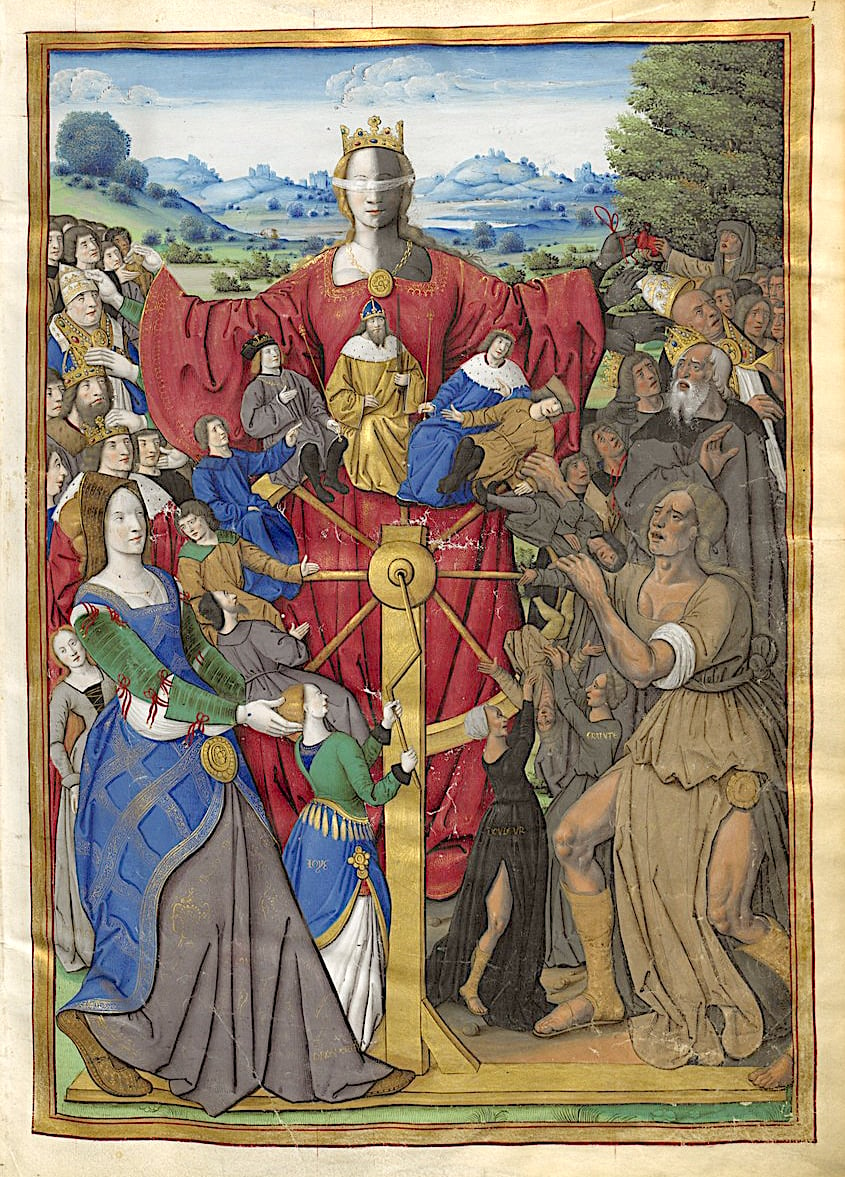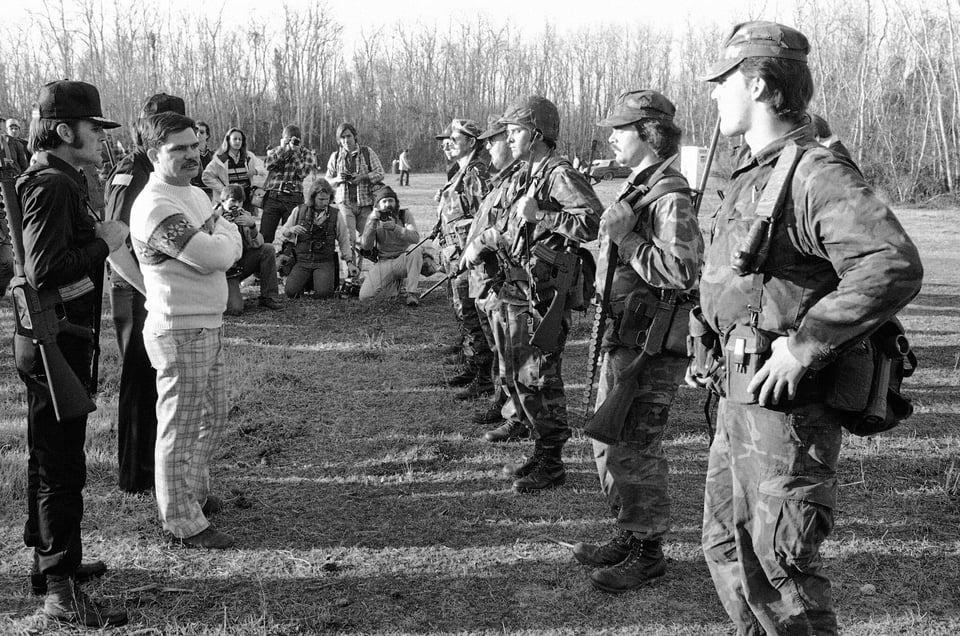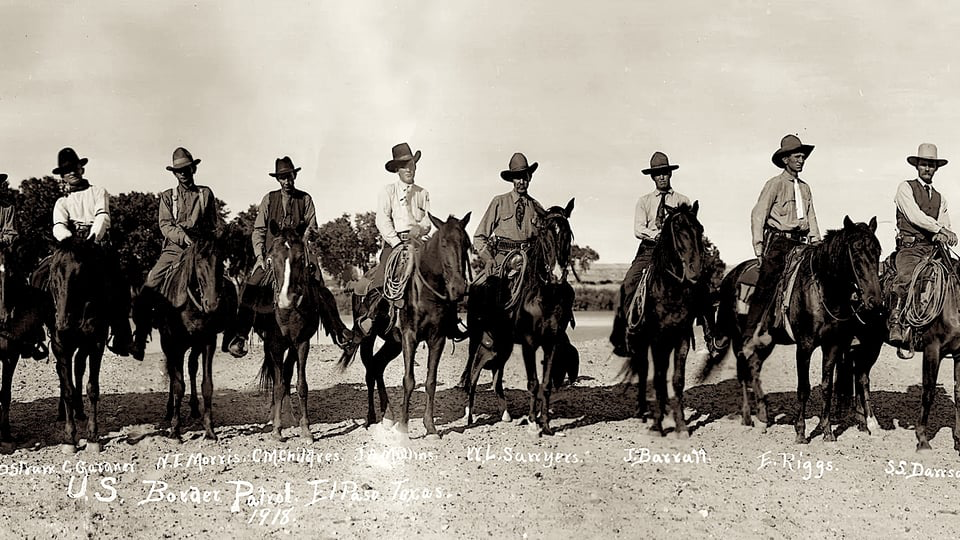The Eternal Return of the Border Wars


Nietzsche had a theory of eternal return—drawn from Indian thought and his own fizzing and eloquent mind—that he proposed, in one book, like this:
What if some day or night a demon were to steal after you into your loneliest loneliness, and say to you, "This life as you now live it and have lived it, you will have to live once more and innumerable times more; and there will be nothing new in it, but every pain and every joy and every thought and sigh and everything unutterably small or great in your life will have to return to you, all in the same succession and sequence" ... Would you not throw yourself down and gnash your teeth and curse the demon who spoke thus? Or have you once experienced a tremendous moment when you would have answered him: "You are a god and never have I heard anything more divine."
If the world turns in a great wheel, we’re not conscious of it. But the past does recur, often in such recency as to overwhelm the present, and grim patterns stack against one another to form a terrible whole.
I’ve spent the last two years writing a book about very grim things—demons and fanatics, anti-abortion terror and theocratic judges, child abuse under the guise of religious homeschooling—and I’m dog-tired of the wretchedness. I’d planned to write about wretched things today, too, but for the last two days, I have been a little bit happy, and the prospect of writing about neo-Nazis at the border made me feel the tendrils of winter crawl back up into my heart and freeze me in my tracks. What wearies me above all things is that the more I learn about specific subjects, the more I see recurring patterns: moral panics that thrust their heads up not just in adjoining decades but centuries, violence that rhymes with past violence or exceeds it.
At the moment, Texas Governor Greg Abbott’s increasingly fascistic and violent crusade at the border of Mexico and Texas—and the militiamen and neo-Nazis that have gathered to support him, as excellently reported by Left Coast Right Watch—are wittingly or unwittingly repeating a longstanding pattern of border violence to protect a white America. They are the heirs of very similar precursors: the Ku Klux Klan Border Patrol and militia groups that similarly prowled stretches of the border in the 1970s, promising to secure a white America through violence.
As Kathleen Belew describes it in her seminal work Bring the War Home: The White Power Movement and Paramilitary America, in 1977, Klan leader Louis Beam created:
"...a Special-Forces style Klan Border Watch, with elite training, to intimidate undocumented immigrants. Its patrols formalized activities undertaken a few years earlier by Tom Metzger, Beam's counterpart in the California KKK. The Border Watch functioned as both a publicity stunt and as a way to inculcate real anti-immigrant hostility and encourage acts of violence... By participating in the Klan Border Watch, Klansmen claimed to be doing the work of the state by enforcing laws already in place and augmenting the US Border Patrol. Beam described his patrols as vigilantism in the service of the state. "When our government officials refuse to enforce the laws of the country," he told a reporter, "we will enforce them ourselves." Straddling the line between the public and private faces of the Klan, the Border Watch rehearsed more extreme forms of paramilitarism to come.

In 2024, Beam’s argument is more or less the same one made by Gov. Abbot, in a series of actions and statements that similarly tread the line between showboating and very real anti-immigrant violence. Declaring that the federal government has “failed the state of Texas” and invoking a “right to self-defense,” Abbott has expanded on his emergency declaration of three years ago, dubbed “Operation Lone Star,” to string concertina wire along the border and floating barriers in the Rio Grande, despite federal rulings against these efforts. Earlier this month, a motley group of militiamen, open racists, Trump diehards and extremist Christians gathered in Quemado, Texas, to celebrate and expand on Abbott’s policies and declare their own lust for vigilante violence in a “convoy to the border.” As Alissa Azar reported for Left Coast Right Watch, rally goers were very much prepared for violence:
During the weekend [of the rally], a nearby migrant facility was forced to evacuate after convoy participants threatened to burn it down with the migrants in it. A group of three people who were a part of the convoy and at the ranch threatened and harassed migrants on their livestream as they made money doing so. Dennis Yarbery (aka MasterGrifter, Big D), Josh Fulfer (aka OreoExpress), and Joe Felix (aka Taco Joe) went searching for migrants after leaving the ranch in Texas and headed to the border in both Arizona and California.
“We’re illegal hunters,” Yarbery told a store clerk on his livestream, “I’ve hunted a lot in my life, but I’ve never actually hunted people, and that’s what we’re doing now.”
Paul Faye, a man from Tennessee who was also planning on joining the convoy was arrested by the FBI due to his plans to murder migrants at the border. Faye informed the FBI that he was “coordinating with militia groups from Kentucky, Georgia, North Carolina, and Tennessee,” and documents also revealed that he was in communication with the leader of the far-right militia group United Patriot Party of North Carolina.
The decades change, the logos shift, but the promise is the same; the only difference is the slight drift towards the mainstream, the fact that what David Duke proclaimed half a century ago is essentially indistinguishable from the statements of the governor of Texas. Everything slides down wretched runnels, the past corrodes the present, violence begets violence, the knowledge cuts like concertina wire.
It hurts to know these things, to turn away from the sun and back to these recurrences. Medieval painters depicted the goddess Fortuna, of the famous Wheel that governed fate, as a heterochromic-eyed and capricious being, sweeping her hands at the wheel to upend fortune in a ceaseless round. It has been the case that the more I know the pattern of something the more I see its roots; and, having seen the roots, I see the poison rhizome running riot everywhere.
The Sword and the Sandwich is a newsletter about deadly serious extremism and serious sandwiches. Please consider supporting this work with a paid subscription.
The theory of eternal recurrence—of an unchanging ouroboros that returns us again and again into the same immutable life—is one that, I confess, makes me want to gnash my teeth. Not because the idea of a recurrent life is so deplorable; but rather because I want to put a spanner in the spokes of fortune’s wheel, rut time from its course, cut the coarse ropy vines between past evils and present ones. I have thrust myself into knowledge in order to do so, even if the knowledge is only that a pattern occurred and is repeating. I think that is worth knowing, even if it makes my blood go gelid with the notion that such evil is inevitable, that it returns and returns again in chimeric incarnations.
Milan Kundera addresses the idea of eternal return like this, in his classic The Unbearable Lightness of Being:
The idea of eternal return is a mysterious one, and Nietzsche has often perplexed other philosophers with it: to think that everything recurs as we once experienced it, and that the recurrence itself recurs ad infinitum! What does this mad myth signify?
Putting it negatively, the myth of eternal return states that a life which disappears once and for all, which does not return, is like a shadow, without weight, dead in advance, and whether it was horrible, beautiful, or sublime, its horror, sublimity, and beauty mean nothing.…
If the French Revolution were to recur eternally, French historians would be less proud of Robespierre. But because they deal with something that will not return, the bloody years of the Revolution have turned into mere words, theories, and discussions, have become lighter than feathers, frightening no one. There is an infinite difference between a Robespierre who occurs only once in history and a Robespierre who eternally returns, chopping off French heads.
Let us therefore agree that the idea of eternal return implies a perspective from which things appear other than as we know them: they appear without the mitigating circumstance of their transitory nature. This mitigating circumstance prevents us from coming to a verdict. For how can we condemn something that is ephemeral, in transit? In the sunset of dissolution, everything is illuminated by the aura of nostalgia, even the guillotine.…
If every second of our lives recurs an infinite number of times, we are nailed to eternity as Jesus Christ was nailed to the cross. It is a terrifying prospect. In the world of eternal return the weight of unbearable responsibility lies heavy on every move we make. That is why Nietzsche called the idea of eternal return the heaviest of burdens (das schwerste Gewicht).
If eternal return is the heaviest of burdens, then our lives can stand out against it in all their splendid lightness.
But is heaviness truly deplorable and lightness splendid?
The heaviest of burdens crushes us, we sink beneath it, it pins us to the ground. But in the love poetry of every age, the woman longs to be weighed down by the man's body. The heaviest of burdens is therefore simultaneously an image of life's most intense fulfillment. The heavier the burden, the closer our lives come to the earth, the more real and truthful they become.
Conversely, the absolute absence of a burden causes man to be lighter than air, to soar into the heights, take leave of the earth and his earthly being, and become only half real, his movements as free as they are insignificant.
What then shall we choose? Weight or lightness?”

Perhaps I choose weight in bearing witness to the past repeating in the present, and choose the heaviness that bears me down. But I think to refuse to see it, to let evil linger, ephemeral and dissolute and unexplainable, as opposed to pinning it to its roots and seeking to deracinate it accordingly—this, I think, provides undue lightness. I would like to believe that eternal return creates not a changeless wheel but an opportunity in each generation to right past wrongs, to sever a cycle of vengeance. I think about this now as our country trembles on the lip of a very dark abyss, an inferno in the shape of an election, as callous and cruel people trade in hate for cash and blood and the hearts of other men.
These things, these things we see, have roots and stories, have taken on shape in a current of centuries and decades; from the slave-catchers that patrolled the Mexican border in the nineteenth century to the “Chinese-catcher” anti-immigrant patrols of the early 1900s, to Louis Beam’s Klan, to Greg Abbot and his vicious acolytes. Knowing this—seeing both failures and successes in prior iterations of response to such cycles—is a powerful tool, a weapon to hone. In its weight, there is strength to raise up one’s arm against such recurrence; understanding can be the enemy of inevitability.
And even though my heart is full of these wretched things I’m glad there’s a bit more sun lately and I got to go to a winter-emptied beach and look at the sea. I saw ducks in the sun and gulls on pilings over the ocean. Sometimes it’s good to fill your mind with wings. In the end, knowing and hoping at once, I choose both weight and lightness: I choose to believe that the past recurs, but the future can be changed.

Add a comment: